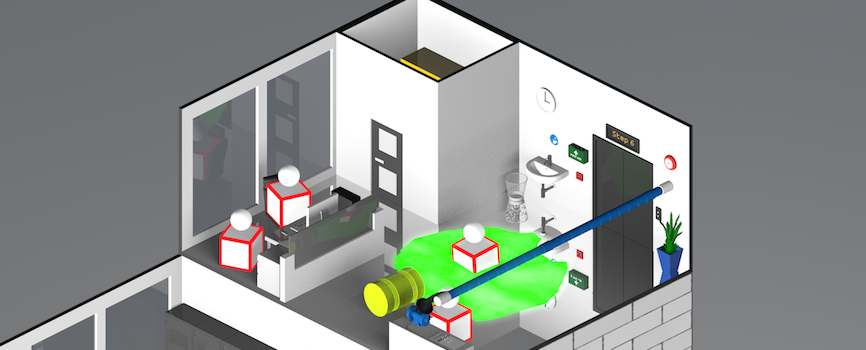How has the construction sector responded to a mental health crisis?
Posted 4 years ago

Back in 2017, Construction News launched their first mental health survey which revealed that 73% of respondents felt employers didn’t recognise the early signs of mental health problems.
Since this report, the conversation has developed, industry leaders have spoken, mental health first aiders have been appointed and a range of initiatives have been launched. 2019’s Mind Matters survey (their most up-to-date survey) found 72.5% (in comparison to the 33.7% in 2017) believed mental health awareness in the sector had been improved. They are currently collecting data for their 2022 survey.
While the conversations about mental ill health have certainly improved, there is still some uncertainty surrounding the subject…
Over the past three years we have really embraced the mental health initiative. Although people in the industry now feel like they have permission to talk about mental health, it remains a very sensitive subject, and we have a fear of saying and doing the wrong things.
This survey asked 1,580 respondents about what they thought were the biggest factors contributing to mental ill-health. They found that long hours, job uncertainty, tight deadlines and financial pressures to be some of the most common factors. The survey also sought out to examine industry attitudes on the subject and it’s clear that the issue is gaining more and more interest for those working in construction, especially with the change in a younger generation entering the industry.
Contributing Factors to Mental ill-health
- 74.2% said long working hours
- 70.8% said job uncertainty
- 68.7% said tight deadlines
- 67.5% said financial pressure
- 64.1% said working away from home
- 28% said late payments
A respondent working as a tendering manager at a major tier one contractor, thought that many organisations state that they offer a mental health initiative but it’s only for show against other employers.
Confiding in Colleagues
The survey found that 90% said that they still thought that there was not enough support for mental health conditions. 36.2% of respondents said that they felt most comfortable talking about these kinds of issues with their colleagues. On top of this, 41.5% said that after talking to a colleague, they felt happy with the support they were given (compared to 30% in 2018 and 27% in 2017).
Talking about mental health
48.3% reported taking time off work because of stress and mental ill-health. 16.5% reported the reason being stress, 15.4% stated mental ill-health and 16.5% said it was a mixture of both. And only 28% of these people felt like they could tell their employer these were the reasons they needed the time off.
41% of people agreed that they felt satisfied with the support their employer gave them after raising a mental health issue. But 78.3% said that they still believe there’s a stigma surrounding the topic and 38.7% felt they had to hide their mental health issues. 68% of respondents in agreed that mental health and physical health-related absences should be treated the same.
Disclosing mental health to employers
Unfortunately, workers disclosing that they need time off due to mental health-related issues has not improved. Only 32.2% of respondents in 2017 said that they told their employer the reason they needed time off was for mental health-related issues and 29% told their employer in 2018.
Sadly, some respondents told Construction News that they didn’t want to talk about their mental health issues due to fear of risking their positions in their workplace. Another said that they felt ashamed to admit ‘weakness’ in their senior position too.
Bullying…
Multiple respondents stated that bullying in the workplace contributed to their poor mental health. What’s more, is that a number of these people that reported these bullying issues as coming from their managers or those in senior positions.
Looking forward
While some of the statistics show positive steps towards removing the stigma surrounding mental health in the construction industry, there is still plenty more that can be done. We must remember that mental ill-health is still prevalent in the construction sector.
Support for colleagues has increased since the first report in 2017 with the most recent survey finding that 70% of respondents believe that their employer would support them if they need help with their mental health and 48.2% believe that they would support a struggling colleague. But 60% said they ‘strongly agreed’ that there was not enough awareness about mental health in construction.
Mark Starling (Keir health and safety manager and mental health first-aid trainer) also notes that while things like ‘time to talk’ groups and mental health first aiders are beneficial, they might not be as easily accessible for those working alone e.g. the self-employed.
We need to use social media more to reach people who are more isolated in their work and offer them support. Painters, decorators and workers who aren’t as involved in teamwork with colleagues need to be reached out to in a way that is accessible and still personal.
A good starting point
If you want to help your employees or colleagues with mental health issues they might be facing, remove the stigma surrounding mental health, or you want to provide employees with the tools to manage and maintain positive mental health, Mental Health Awareness training is the perfect place to start. Our Mental Health Awareness in Construction Training forms part of our Mental Health & Wellbeing bundle and helps to spread awareness of mental ill-health in the construction sector and provides employees with a wellbeing toolkit to manage day-to-day mental health, while raising awareness of some of the mental health problems people might be facing.
Get started with a free no-obligation trial of any of these courses today!


Ellie Johnson
Head of Production
Related articles



Opt-in to our newsletter
Receive industry news & offers